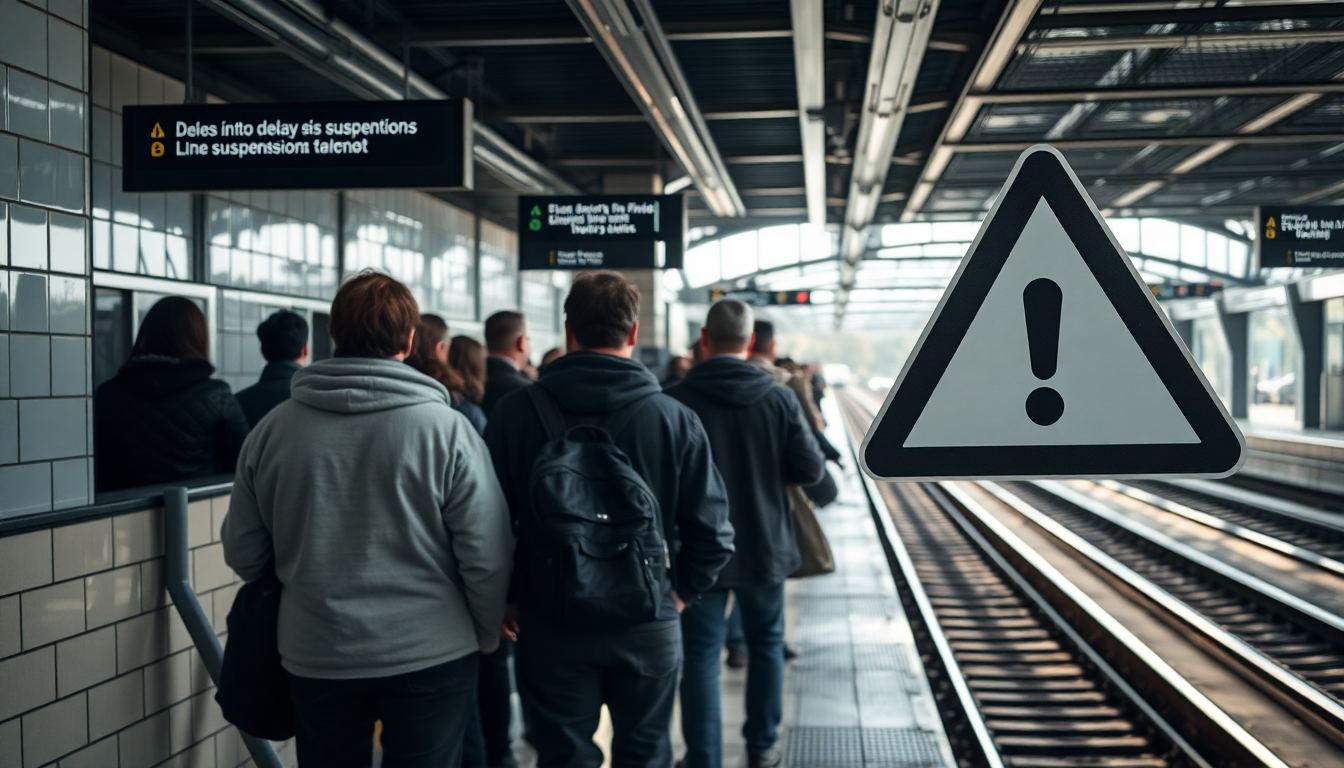Table of Contents
Have you ever found yourself stuck in a crowded metro, wondering about the unseen challenges that urban transit systems face? Recently, disruptions in the Brussels metro have highlighted just that, causing significant inconvenience for commuters following the discovery of a body in a tunnel. This incident led to the suspension of services on lines 2 and 6 between Trone and Gare du Midi, shining a light on the complexities of city transport and the vital importance of public safety.
Metro Disruptions: Immediate Effects on Commuters
Imagine rushing to catch your train during peak hours only to find your usual line unexpectedly halted. That was the reality for many commuters when services were suspended just before 1 p.m. With lines 2 and 6 temporarily out of action, those who rely on public transport were left scrambling for alternatives. STIB’s spokesperson, Laurent Vermeersch, reassured the public that while these specific lines were affected, other metro services continued to operate, offering a bit of relief amidst the chaos.
But it’s not just about delays—these disruptions can shake commuters’ confidence. Passengers might find themselves feeling anxious about their safety, prompting some to consider biking or using rideshare services instead. This incident serves as a stark reminder that beyond the immediate inconveniences, public perception of the metro’s reliability is at stake.
Investigating the Incident: Safety Measures and Protocols
In light of the disturbing discovery, the justice department and police have launched a thorough investigation to uncover the details of what happened. This situation underscores the need for strict safety protocols in urban transit systems. Vermeersch emphasized that services will remain suspended until the investigation wraps up, reinforcing a commitment to ensuring passengers’ safety and trust in the system.
While the focus is currently on this specific incident, it also highlights the importance of having robust emergency response plans in place. Effective crisis management relies heavily on well-trained staff and clear communication strategies, which are critical for maintaining public trust during unforeseen events.
Broader Implications for Brussels and Urban Transportation
The recent disruptions in Brussels aren’t just an isolated incident; they have broader implications for urban transportation and the city’s overall dynamics. As Brussels navigates the complexities of providing reliable public transport, events like this might influence ongoing discussions about infrastructure improvements and investment in transit systems. The connection between urban transit and public safety is paramount; citizens’ confidence in these systems directly affects how often they choose to use them.
Moreover, this incident has sparked important conversations about enhancing security measures within public transport networks. As cities across the globe face similar challenges, the lessons learned from Brussels could pave the way for best practices aimed at boosting safety and reliability in urban transit systems. Are we ready to rethink how we approach public transport safety?


